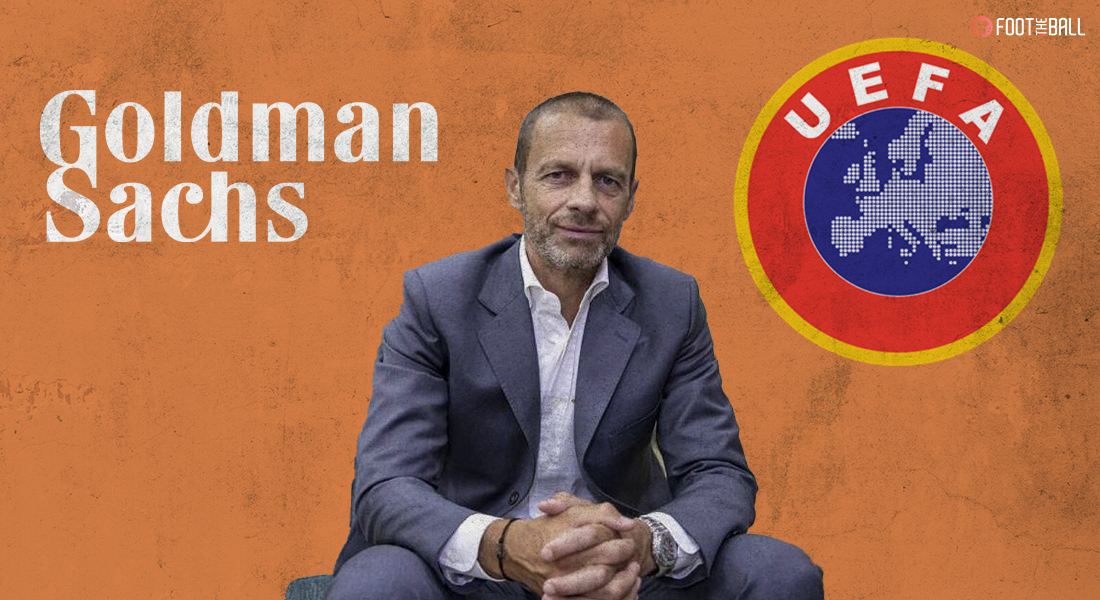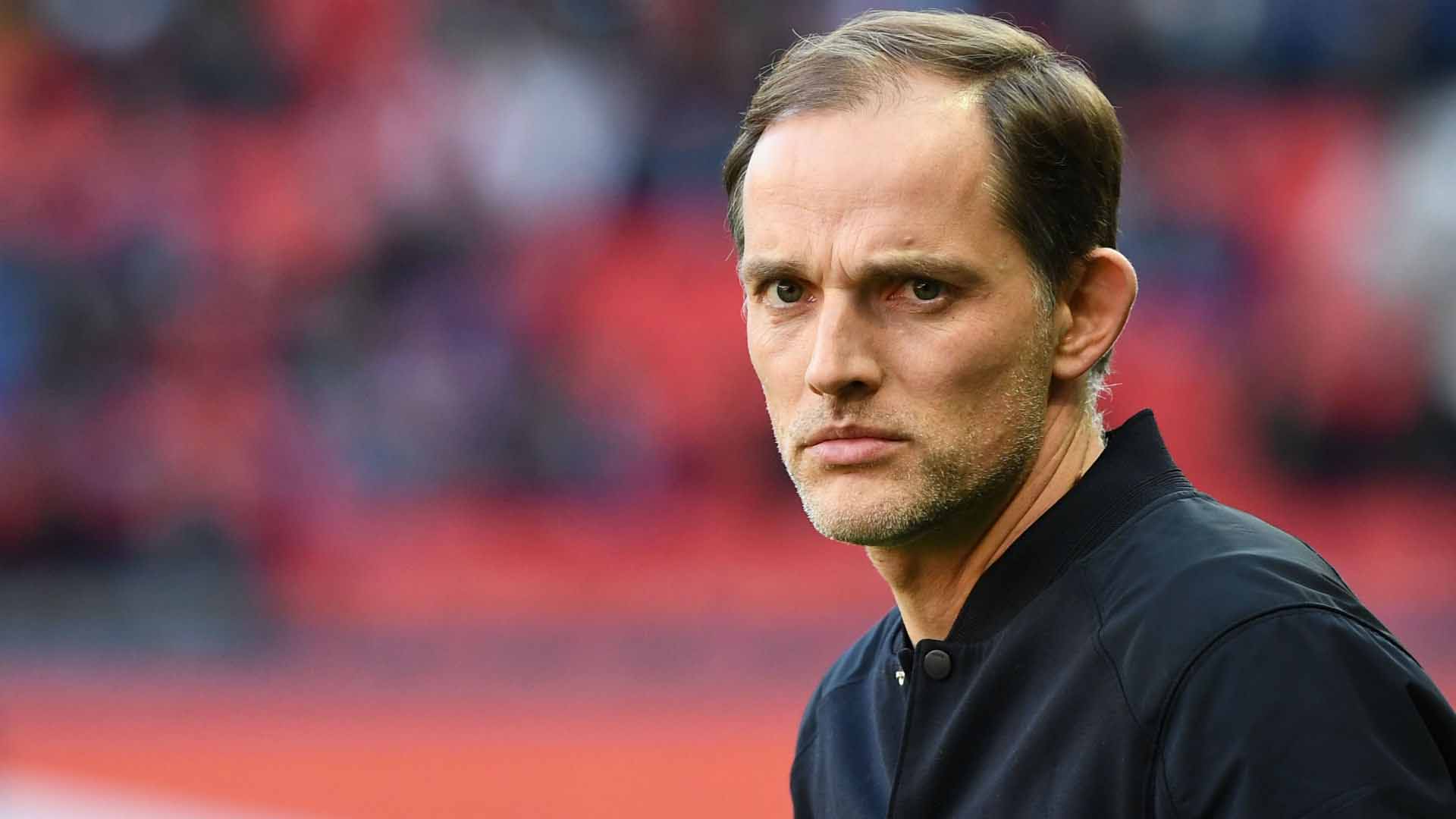In a bid to ease the financial constraints on its member clubs, UEFA’s proposed €7bn rescue fund is seeing a mad dash of banks looking to get involved. Names such as Goldman Sachs and Macquarie, private equity firm Apollo are just some of the institutions said to be competing to provide the money for the fund.
The aftereffects of the pandemic are still being keenly felt by the major European teams and this latest move by UEFA needs to be addressed at length as to what it holds for the future.
WHAT IS IT ALL ABOUT?
UEFA’s plan is to initially raise €2bn before going onto the final figure with time. The money that will be provided is set to be guaranteed against the governing body’s broadcasting rights of its competitions. The idea of the fund is to provide cash infusion to some of the biggest teams on the continent participating in the Champions League, Europa League and others, that have accrued the highest amount of debt since the pandemic began.
Among the 12 founding members of #ESL, only Chelsea FC revealed no financial debt as of June 2020 (Liverpool FC have not yet disclosed their financials for the 2019/20 season). The reasons behind high levels of financial indebtedness vary from club to club: #SuperLeague pic.twitter.com/riGrhxq0zY
— KPMG Football Benchmark (@Football_BM) April 20, 2021
The method of borrowing and repayment is said to be “very inexpensive” and since it is backed by UEFA, the terms should be favourable for the clubs. President Aleksander Ceferin spoke of a “new financial reality” which will now witness the influx of more corporate entities into the world of football against the backdrop of lucrative incomes.
A FORCED NECESSITY?
It is not to say that other organizers of leagues/competitions are not doing anything for their member clubs. La Liga has entered into a €2.1bn investment deal with private equity firm CVC Capital Partners over a 50-year period to provide financing to its member clubs across the top two divisions.
Press release: #LaLiga announces an agreement in principle with CVC that will inject 2.7 billion euros into the competition and its clubs.
— LaLiga English (@LaLigaEN) August 4, 2021
The English Football League (EFL) agreed upon a €117.5m fund for clubs across the Championship, League One and League Two with US insurance firm MetLife. UEFA’s decision of setting up the latest relief fund is also facilitated by events that shook the footballing landscape this year- the European Super League.
EFL statement: @SkyBetChamp loan fund secured. #EFL | #SkyBetChampionship https://t.co/Fc2EIMF2BS
— EFL Communications (@EFL_Comms) March 29, 2021
12 of the biggest clubs by reputation and heritage, including Manchester United, Barcelona, Real Madrid, proposed the formation of a new league that would have superseded the Champions League. The main driving concern was the financial windfall that the distressed clubs would have received from the bankers as backers of the league.
The European Club Association have released a statement in response to the European Super League @ECAEurope pic.twitter.com/mcPSmQdV35
— utdreport (@utdreport) April 18, 2021
That idea of the Super League was nipped in the bud by the reaction of fans and other clubs with nine of the original dozen pulling out. Barcelona, Juventus and Real Madrid still remain committed to the concept and this move by UEFA can be seen as something of a compromise which ensures that the Super League fiasco does not happen again.
THE DISTRESS IS REAL
This is not to say that top teams are not heavily bogged down by debt and losses since the pandemic began. The closure of stadiums leading to a sharp drop in match-day revenue and ticketing income has had a major knock on effect. Barcelona lead the way in this department with staggering losses of £413.2m over the last season.
🚨 LATEST INFO: FC Barcelona have a total debt of €820M and in August 2021, the club is due to repay more than €400M of the debt.
⚠️ The contract with Goldman Sachs (Espai Barça) would mean increasing the debt to more than 1.6 Billion!#FCB 💰❌
Via (🟢): @QueThiJugues pic.twitter.com/GXdpH1cl8G
— Barça Buzz (@Barca_Buzz) November 10, 2020
That has seen their debt balloon to £1.16bn with the Catalans losing Lionel Messi due to their financial inability to keep him. They are closely followed by Spurs whose debt is the highest in the Premier League with £831m, mostly from the construction of their new stadium. Juventus lost £179m in 2020-21 as their debt rose to £332m.
In addition, clubs have transfers debt for remaining stage payments. In the Premier League this is £1.6m gross (£885m net of receivables). Revised payment schedules might be put in place, but potentially an issue for smaller clubs, e.g. Bournemouth owe £76m net. pic.twitter.com/4b9dLVLaCm
— Swiss Ramble (@SwissRamble) March 24, 2020
On the other side, Manchester United managed to reduce their debt a little- from £474.m the previous year to £419.1m while Real Madrid had a profit of just £1m, mainly due to their player sales and no new signings in 2020.
Under the Glazers' Manchester United's Football Net Debt (borrowings less cash plus transfer fees owing less transfer fees receivable) has risen from £12m to £566m. #MUFC pic.twitter.com/DNguHHz2aC
— Price Of Football (@KieranMaguire) February 19, 2021
In this regard, UEFA’s fund will come as a boon to these clubs but it remains to be seen how the other details of the fund works out.
NOT EVERYONE IS HAPPY
The lesser heralded clubs participating in Europe’s premier competitions are worried as to who will get the most benefit from the fund. “This lending facility should not go to clubs who have done a bad job in creating a solid balance sheet, like Barcelona,” argued Bart Varhaeghe, majority shareholder of Club Brugge.
Others state that there should be a fixed schedule of repayment so that the funds cannot be misused through overspending by badly managed clubs. Furthermore, these teams are quick to point out that the fund should not be used for “rescue” after poor decisions but rather reward good behaviour and prudence.
Premier League's Big Six 'are set to bank huge sums from UEFA's new £6BILLION fund' https://t.co/8oVa8tvWmP
— MailOnline Sport (@MailSport) May 9, 2021
“The provision of this facility should not lead to further inequity in the system,” said Jacco Swart, the managing director of the European Leagues, under whose supervision comes leagues in Latvia, Iceland and Kazakhstan.
NATURE OF FOOTBALL IS CHANGING
The entry of hedge funds and equity firms into positions of ownership and control over football teams has increased by quite a bit over the last few years. Several participants of this year’s Champions League fall under the same purview. AC Milan, Atletico Madrid, Inter, are just some of the names that have foreign owners in some capacity that are not individuals but financial institutions.
🇺🇸❤️💙 Il primo messaggio di #777Partners ai tifosi del Grifone.
✍️ Fate sentire tutto il calore del tifo Rossoblù! pic.twitter.com/tGRpZC1G6w
— Genoa CFC (@GenoaCFC) September 23, 2021
The recent acquisition of Italy’s oldest club Genoa by 777 Partners highlights the growing influence of these organizations in this post-pandemic world with no signs of abatement. UEFA is now in the process of taking the next steps of easing the burden, but for whom and how exactly remain the crucial worries.




